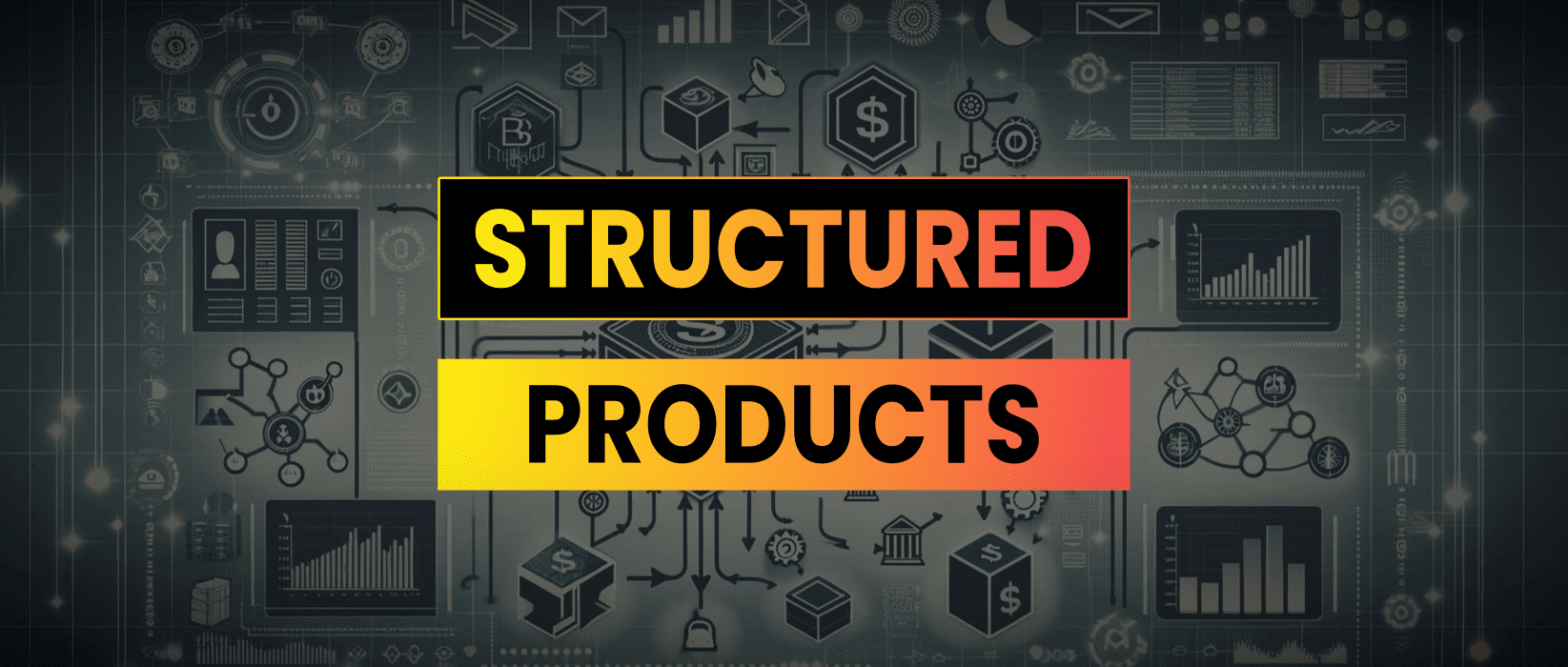We all remember the 2008 financial crisis, a global upheaval sparked in part by complex structured products like collateralised debt obligations. These financial instruments are still widely used in traditional finance to manage risk and enhance returns.
But what if we could reimagine these products in DeFi? In this article, we’ll explore how decentralised structured products could bring transparency, security, and accessibility to a broader audience.
What Are Structured Products?
Structured products have long been a staple in traditional finance, designed to meet the complex needs of large financial institutions that standard loans simply can’t address. Let’s dive into some of the types of structured products typically used in tradfi.
- Collateralised Debt Obligations (CDOs) These are backed by a pool of loans and other assets, offering a way to diversify risk.
- Collateralised Bond Obligations (CBOs) By pooling junk bonds, these create investment-grade securities, reducing individual investment risk.
- Asset Backed Securities (ABS) Backed by income generating assets like credit card receivables and auto loans, ABSs provide a steady interest stream.
Structed DeFi Products
DeFi introduces transparency, security, and accessibility that traditional finance lacks. We’ve seen already that Solidity lends itself to building layers on top of layers with “the lego bricks of DeFi”. Structured products are an example where there is clear demand, proven by traditional finance, for something that doesn’t exist currently.
Decentralized smart contract platforms such as Ethereum and Solana offer developers a way to build their own applications and plug into an existing ecosystem of digital assets. DeFi offers a number of benefits such as:
- Transparency and Security Blockchains ensure that all transactions are transparent and immutable, reducing the risk of fraud. Open source code and terms within a smart contract provide
- Accessibility DeFi platforms hold the potential to open up structured products to a broader audience. Financial inclusion is a core principle and anyone with a metamask wallet is treated equal to the largest institutions. Whether structured products are something that would be attractive or a good fit for the average user remains to be seen however.
- Efficiency Smart contracts eliminate intermediaries, remove human error and offer a level of automation that is not available in traditional finance.
A Structured DeFi CDO Example
Imagine a decentralised structured product called “DeFi CDO” This financial instrument would be presented in the form of a standard ERC20 token. The token contract would include a vault which repackages various institutional loans from different sectors, such as real estate, technology, and healthcare, into a single diversified risk basket.

Each loan is validated and placed on-chain, ensuring transparency and security. Investors can purchase tokens representing a share in this diversified basket, spreading their risk across multiple industries and loan types.
A validator or network of validators would be responsible for bridging the funds to the institution, ensuring repayments are made in a timely manner and that capital is eventually returned to investors. This is the bottleneck where the easy option is to look towards a centralized party but with the right incentives it could be possible to maintain a level of decentralization.
On the demand side this product opens up access to institutional grade investments to a broader audience, including retail investors who previously couldn’t participate in such complex financial instruments.
The decentralised nature of the product also means that it is less susceptible to systemic risks associated with centralised financial institutions, offering a more resilient and inclusive investment opportunity.
Timeframe For Adoption
This is one of those ideas that we haven’t seen yet perhaps because we are still too early. The technology benefits are clear and the world is migrating towards digital assets so how soon can we expect innovations like this to be widely adopted?
The reality is that widespread institutional adoption of decentralised structured products might still be years away. Financial regulations are still catching up with the fast paced development of blockchain technology, presenting significant regulatory hurdles. While promising, the technology underpinning DeFi is still evolving and needs to prove its robustness over time. Institutions tend to be risk averse, so it will take time for them to trust and integrate these new technologies into their operations.
The potential of decentralised structured products is immense and will one day be a trillion dollar industry, promising to revolutionise the way we think about risk management and investment diversification. By embracing DeFi, we can unlock new financial opportunities, democratise access to sophisticated investment tools, and create a more transparent financial system.
If you’re excited about staying on top of blockchain development and emerging DeFi technologies, consider subscribing to my newsletter. You’ll get the latest insights and updates directly to your inbox https://bachini.substack.com


